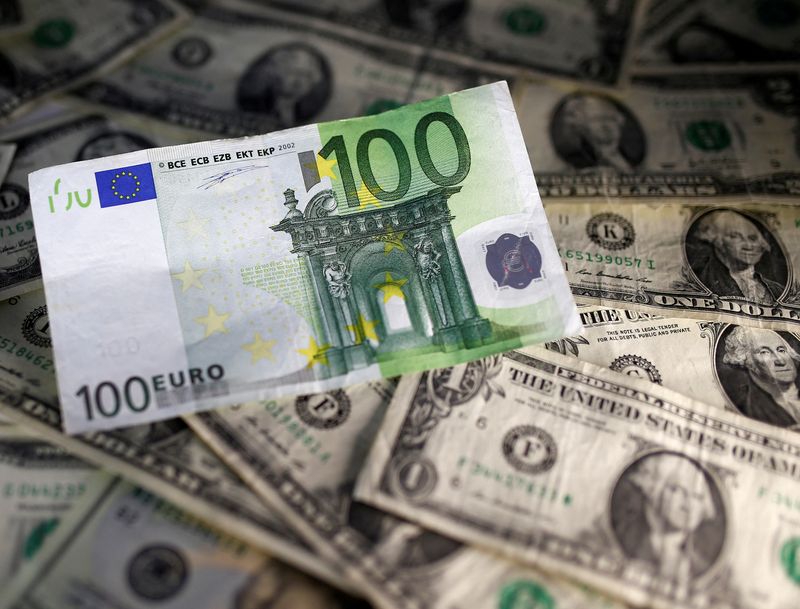By Medha Singh and Tom Westbrook
(Reuters) -The euro dipped against the dollar on Thursday as traders reined in bets of more interest rate cuts by the European Central Bank, while broader currency moves were muted in U.S. holiday-thinned trading.
The Japanese yen slipped to 151.58 per dollar but with its 2.1% gain this week the currency has recovered losses suffered since the U.S. election and was heading for its best weekly showing in three months. Markets see about a 53% chance the Bank of Japan will raise rates next month.
Broad trade was light as U.S. stock and bonds markets were shut for the Thanksgiving holiday.
The dollar index ticked up to 106.21 after dropping to as low as 105.85 in the prior session, a two-week trough.
"It's likely to be a subdued couple of days to wrap up the week but I expect the dollar should rebound as December gets underway," said Michael Brown, senior research strategist at Pepperstone, adding that Wednesday's move that put the dollar back under 106 seemed a bit "detached from fundamentals."
"We're still talking about U.S. exceptionalism, an incredibly long laundry list of issues in the euro zone and now we've got French budget worries this morning."
The euro slipped 0.2% to $1.054625 after its sharp rise on Wednesday following hawkish remarks from European Central Bank board member Isabel Schnabel
The comments prompted investors to pull back on more aggressive rate cut expectations and buy the common currency which is on track for its worst month in two-and-a-half years.
German annual inflation was flat in November despite expectations of a second consecutive increase. It comes ahead of euro zone inflation data on Friday which could offer hints on the ECB's next steps.
Money markets now see only a 13% chance of a larger 50 basis points rate cut by the ECB, whereas last Friday it was a toss up. A 25 bps move is fully priced in.
"Today’s macro data releases in the euro zone should encourage the ECB hawks to object to a 50bp rate cut in December," said Carsten Brzeski, global head of macro at ING.
Eyes are also on France's fragile coalition government, which is struggling to pass a budget.
HOLIDAY LULL
Sterling was little changed at $1.2666 versus the greenback, while the Swedish crown firmed against the dollar and euro as data showed sentiment among businesses and consumers in Sweden picked up in November.
The Australian dollar recovered from early weakness and gain slightly to $0.6501. Reserve Bank of Australia governor Michele Bullock said that core inflation was too high to allow for rate cuts in the near term.
While the currency majors were in a bit of a lull, there was some action in emerging markets.
Russia's rouble strengthened to just over 110 per dollar after shedding nearly a third of its value since August as the Russian central bank said it would stop forex purchases until the end of the year to support the currency.

Brazil's real touched a record low on concern over the impact of tax cuts on a stretched budget.
South Korea's won was a little weaker after the central bank cut rates at a second straight meeting - an outcome only four of 38 economists polled by Reuters had foreseen.

